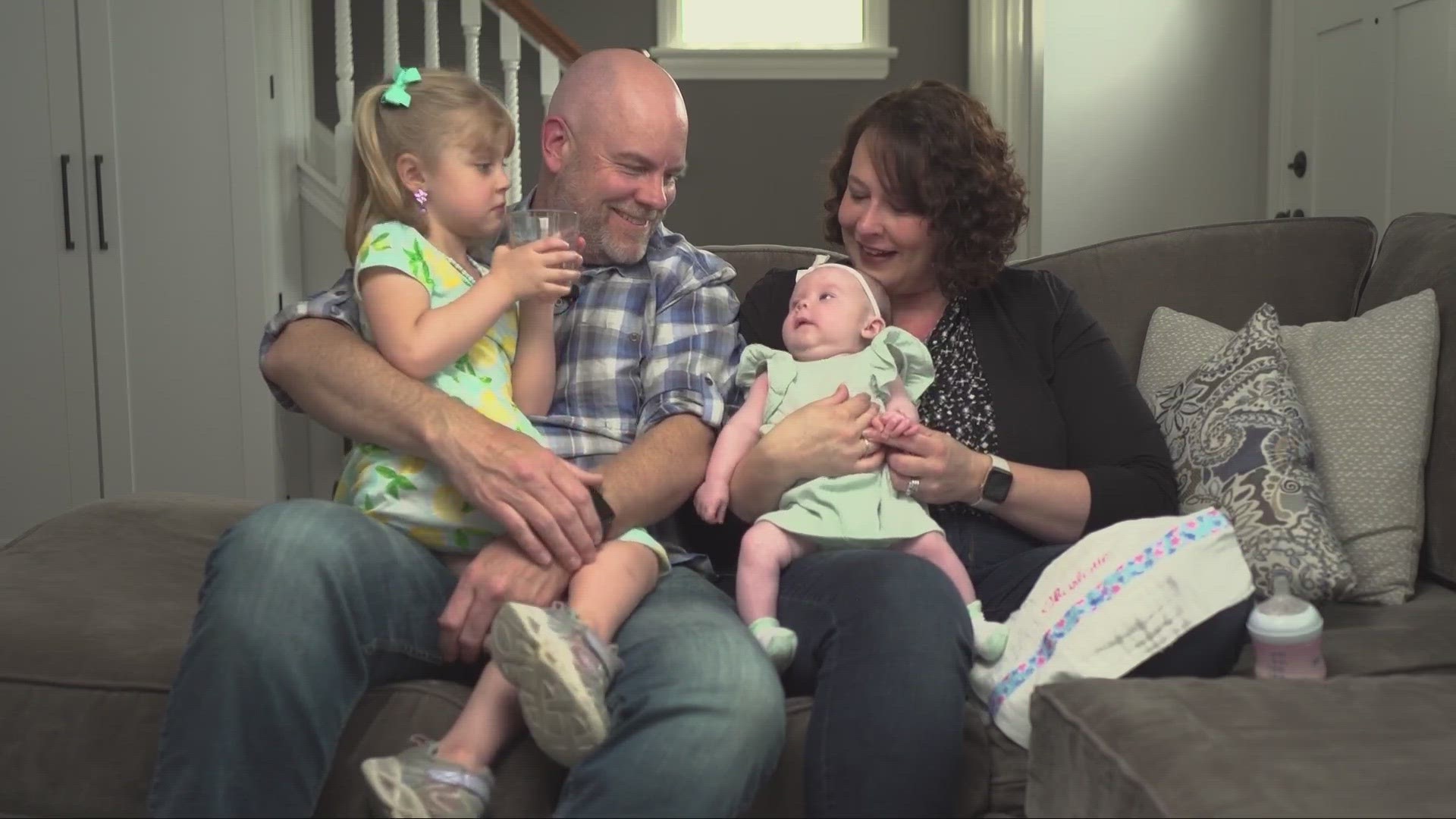PARMA, Ohio — On this Mother's Day, there's no one more grateful than 39-year-old Anne Hutchison, of Parma.
"I have two beautiful girls," she says.
Anne and her husband Brad are parents to Lillian, 3, and Charlotte, 3 months. Brad also has a 12-year-old daughter, Adelaide, who loves being a big sister.
But their journey to become a family of five hasn't been easy. In 2019, days after the birth of Lillian, Anne knew something wasn't right.
"I was really short of breath, having a hard time going up and down the steps, Hutchison recalled. "The next thing I knew, I was trying to lay down and it felt like somebody was shoving my head underwater, which in fact was fluid in my lungs. And I didn't know."
She decided to call 911; it ended up saving her life.
"I went into the emergency room, they took my blood pressure, and it was 210 over 100," she said. "I just was like, 'Uh oh,' and so they took me back up to OB triage and the next thing I know, there were like 10 doctors in the room, and I just started crying. I was terrified.
"They thought maybe I'd had a heart attack or something, but they knew it was something with my heart, and that I was in congestive heart failure. It didn't make any sense to me that that would happen. I was healthy; I had no heart problems."
The rare condition of heart failure in late pregnancy — or up to six months after delivery — happens in about 1,000-2,000 women, according to Anne's cardiologist, Dr. Karlee Hoffman of the Cleveland Clinic. However, researchers still aren't sure what causes it.
In an instant, Anne went from celebrating her daughter's birth to wondering how long she'd be around.
"I kept asking them if I could just go home," she told us. "I was very, very upset and I was crying. I kept begging them to let me go home to my baby because I was really terrified that something was going happen and I wasn't gonna be able to be with her.
"Then the thought process was, 'Oh my gosh, am I going to die?'"
Anne was fitted with a pacemaker and defibrillator. When she got better, she set her sights on having another child. Her doctors weren't exactly on board.
"The reality is with the second pregnancy, her risk of developing heart failure again was about 30%, and from a medical perspective and a medical recommendation standpoint, that's unacceptable to medically recommend to proceed with another pregnancy," Hoffman explained. "However, Anne was persistent, and this is something that she really wanted was to have a second baby.
"My job as her doctor is not to decide for her and her rights as a woman to do what she wants to do when it comes to, you know, childbirth. But my job as a medical professional is to give her the data, give her the evidence, and support her with whatever decision that she wants."
Anne said she kept the faith and believed fully in her doctors at the Cleveland Clinic, who closely monitored her. In February, Anne gave birth to her second daughter, Charlotte. Today, everyone is healthy.
"My motto is 'high risk, high reward,'" Hoffman said. "Whenever you see Anne go through this pregnancy and stay stable and deliver a healthy baby and now her life is complete, that's why I do what I do."
Anne's message to expectant mothers? Trust your gut. Her heart failure symptoms are similar to those of pregnancy, and getting help saved her.
"I think it's really important that everybody gets prenatal care; prenatal care is just absolutely necessary," she added. "And to listen to your body after you have a baby. For somebody who's gone through peripartum cardiomyopathy, afterwards, it might seem like there's no hope or your life has changed, but you can have a normal life."
On this Mother's Day, "thank you" would never be enough.
"How do you thank somebody who helped make sure that you're able to live to see your children? I don't know," Anne said. "How do you thank somebody for that? I never will forget them. They're amazing."

